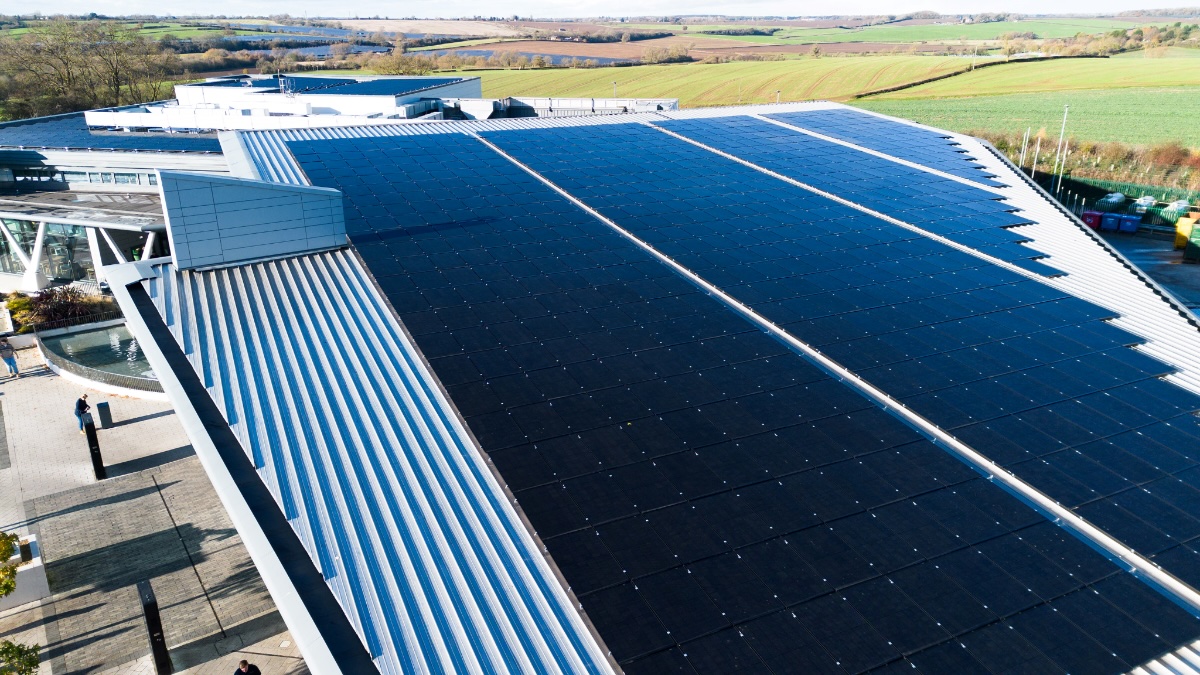Holidaymakers may have filled beer gardens and seaside restaurants as the UK’s hottest summer draws to a close, but behind the scenes the hospitality sector is grappling with a growing crisis.
Rising operational costs – particularly soaring energy bills – are putting significant pressure on pubs, restaurants, cafés, and hotels. Since last autumn, more than a thousand venues have closed, and the industry has accounted for over half of the UK’s job losses since October 2024.
The challenge is compounded by the UK’s Industrial Strategy, which from 2027 will reduce electricity bills for energy-intensive industries such as manufacturing by up to 25%, but leave sectors such as hospitality in the cold. Hospitality businesses will not receive the same support, leaving them dangerously exposed to volatile wholesale energy prices.
While government relief is limited, operators are not without options. Investments in on-site generation, battery storage, and energy efficiency measures can help the sector mitigate risk, improve resilience, and plan for the long term, as Kat Auckland, Director of Communications and Projects at Geo Green Power explains.
On-site generation and efficiency
“Having spent 15 years in the hospitality industry I know how accomplished the sector is at controlling cost, and the bottom line is that hospitality operators need to take the same proactive approach to managing their utility costs,” says Auckland. “Many operators have already maximised savings through energy efficiency and resource management, and they must now turn their attention to energy generation for long-term performance.”
For larger operators, even marginal efficiency gains have delivered meaningful savings. Measures such as LED lighting, occupancy sensors, and modern heating and cooling systems can reduce consumption without compromising guest comfort.
But to truly stabilise costs, businesses must look at renewable energy to future-proof operations, and many already are.
Advances in solar technology mean panels generate significantly more energy per square metre than previous models, opening up feasibility for older buildings or sites with limited roof space. At the same time, costs have fallen by almost 90% over the past decade (Our World in Data, 2024), making adoption more financially accessible.
“These improvements mean operators can now generate more energy from smaller installations,” Auckland adds. “Funding options such as power purchase agreements are also helping to lower the barriers to entry.”
Crucially, operators don’t need to overhaul their entire estate at once. “We’re seeing many hospitality businesses take a phased approach, starting with one or two sites, then reinvesting the savings into further installations,” says Auckland. “That ability to scale gradually makes solar a more realistic and sustainable strategy for groups managing multiple venues.”
Solar carports offer untapped potential
One example of this phased approach is the integration of solar carports. These structures convert underutilised parking areas into sources of solar energy, allowing businesses to gradually expand their renewable energy capacity.
Beyond generating electricity, solar carports offer multiple advantages, they provide covered parking, support EV charging, reduce energy costs, and can even allow surplus energy to be sold back to the grid.
“There is untapped power waiting for businesses across the UK in their car parks. They could harness enough energy to cover their electricity needs and even sell energy back to the grid, paying for their investment in the process,” says Auckland.
“Solar carports, like the ones being deployed at leading hospitality businesses, have a lot of potential because they’re free-standing structures that don’t require additional land or a reduction in parking spaces, whilst requiring no major groundworks.”
Battery storage
Battery storage provides additional flexibility for managing energy consumption. Paired with on-site solar generation, it allows businesses to store surplus daytime energy and use it during peak evening hours, when restaurants, hotels, and leisure venues are busiest.
“This approach can help businesses manage costs more effectively while reducing reliance on grid electricity during high-demand periods,” explains Auckland. “It also supports wider decarbonisation goals, which are becoming increasingly important for customers and stakeholders alike.”
By smoothing consumption and reducing exposure to volatile wholesale prices, storage not only lowers costs but also provides greater certainty over energy supply. For hospitality operators, it strengthens resilience while securing reliable supply regardless of market fluctuations or geopolitical events.
Building resilience and sustainability
The case for investment in energy efficiency and on-site generation extends beyond cost control. Guests are increasingly attentive to sustainability credentials, employees want to work for businesses aligned with their values, and investors expect credible action on carbon reduction.
In a landscape where external support is limited and energy volatility is set to persist, building resilience is no longer optional. By investing in efficiency, solar PV, and battery storage, hospitality businesses can take greater control of their future, reduce financial risk, and safeguard the sector’s long-term stability.
For more information, visit here.




